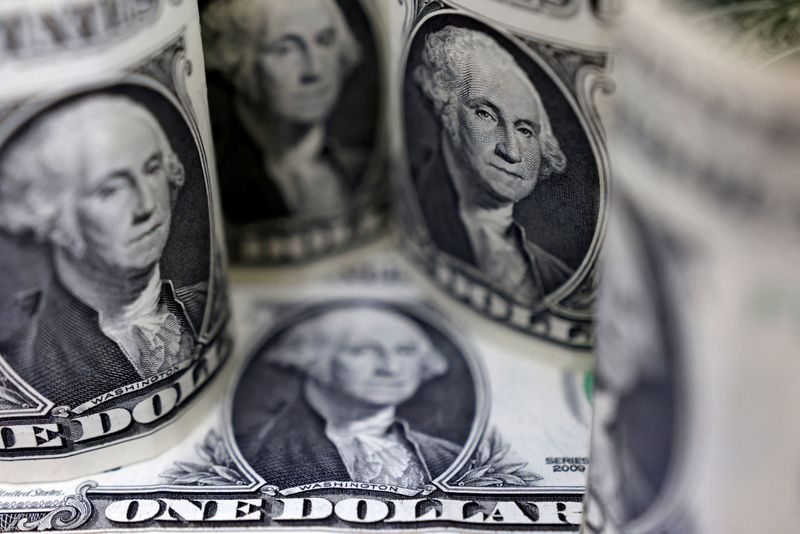By Matt Tracy
(Reuters) – U.S. corporate bond market issuance is projected to slow next week from a hectic start to the year after economic data sent mixed signals on Friday but tempered expectations of an interest rate cut in March.
The first week of 2024 saw nearly $59 billion in high-grade bond issuance, beating forecasts of $50 billion to $55 billion.
The rush was led by top-rated companies aiming to take advantage of relatively lower borrowing costs due to a tightening of credit spreads, the premium charged over Treasuries, and decline in Treasury yields at the end of 2023.
They were met with strong demand as investors aimed to lock in yields that may not be available if the Federal Reserve starts to cut U.S. interest rates later this year.
But economic data releases on Friday sent mixed signals and led to sharp moves in Treasury yields. Yields hit three-week highs early in the trading session and then nosedived, taking the 10-year Treasury back below 4%.
The volatility in yields and release of bank earnings next week could limit supply for new bonds.
“Next week is going to be pretty light, pretty moderate in comparison,” said Guy Lebas, chief fixed income strategist at asset manager Janney Capital Management.
Bond syndicate desks expect $35 billion on average in issuance next week, according to Informa Global Markets.
As such, these desks expect a steady flow of new bond issuance in January as borrowing costs were still lower than the fourth quarter of 2023.
Investment-grade index yields averaged 5.3% on Jan. 4 compared to 5.88% in the fourth quarter, according to ICE BAML data.
Dan Krieter, director of U.S. investment grade strategy at BMO, noted companies would save nearly 85 basis points now compared to October and November when yields averaged 6.13%.
Investors are still attracted to high-grade bonds, as seen in $5 billion that flowed into related funds and ETFs for the week ended Jan. 3, according to a BoFA Global research note.
That was higher than $3.15 billion the prior week and the biggest weekly inflow since July.
(Reporting by Matt Tracy; Editing by Cynthia Osterman)
